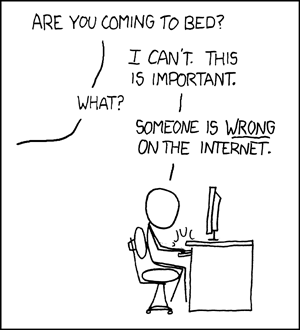Can we please stop with this nonsense discussion (and split it into another topic maybe, I feel like it has run out of the scope of this compo a long time ago)?
This is going in circles, it seems like we have extremists on either side and you won't convince them just by arguing (also arguing on the internet in general).
I think it has already been established that the competition rules won't be able to please everyone, so ED just has to select one option and roll with it. (and all advantages/disadvantages on either side have been laid out)
In any case, we need some final, fixed rules and a date when the compo is actually starting!
Time is ticking away and while you technically could start already, some of the rules need to be set, in order for the compo to be advertised elsewhere (not all Pandora devs will read this forum) and really get off the ground.
This is going in circles, it seems like we have extremists on either side and you won't convince them just by arguing (also arguing on the internet in general).
I think it has already been established that the competition rules won't be able to please everyone, so ED just has to select one option and roll with it. (and all advantages/disadvantages on either side have been laid out)
In any case, we need some final, fixed rules and a date when the compo is actually starting!
Time is ticking away and while you technically could start already, some of the rules need to be set, in order for the compo to be advertised elsewhere (not all Pandora devs will read this forum) and really get off the ground.


